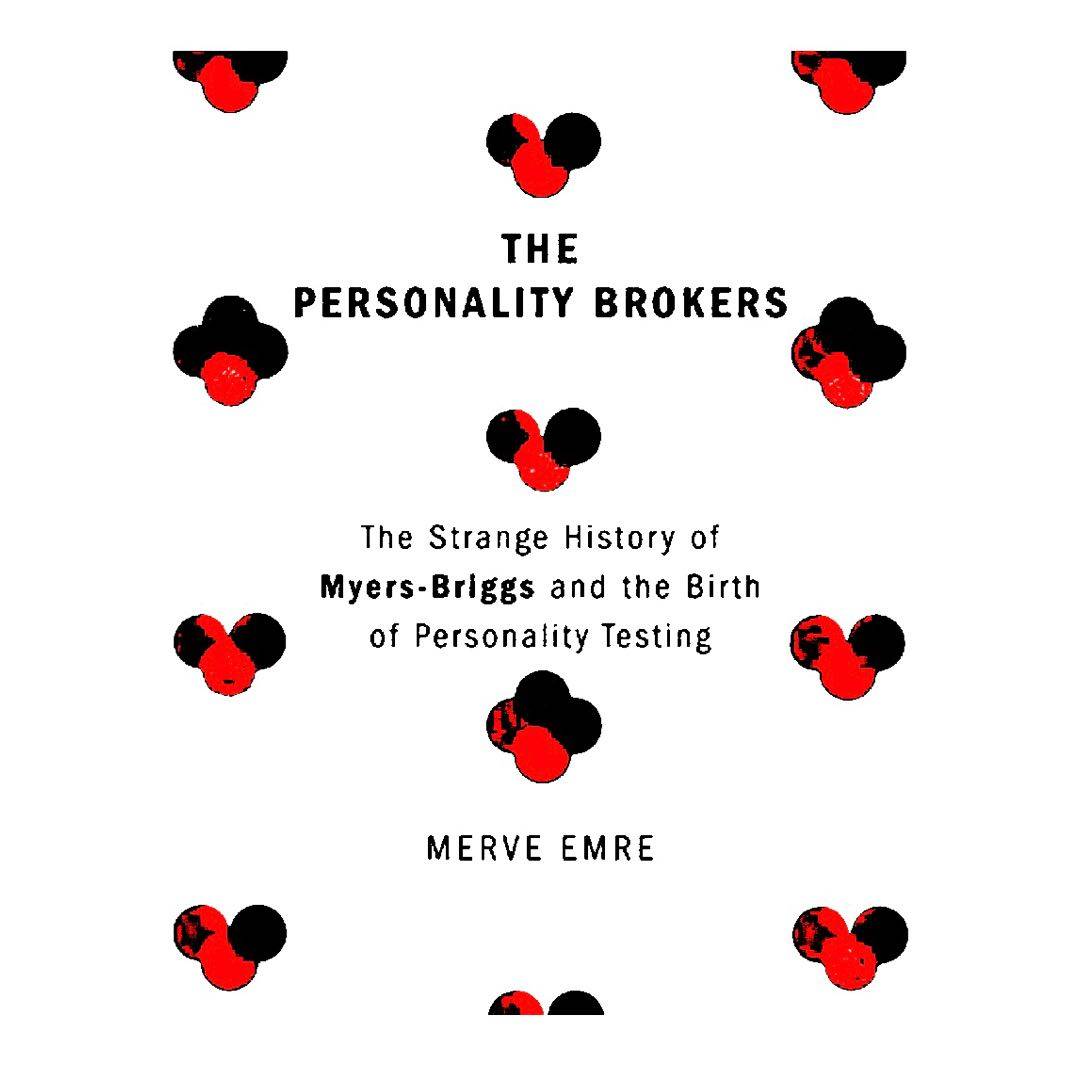
Well now IDGAF that I‘m an INTJ 😐

Well now IDGAF that I‘m an INTJ 😐
The bits about how the test itself was refined were interesting, especially that it was developed by two women. But some bits went on too long, and there was some generalization about millennials when talking about society as a whole embracing the cult of personality testing 🙄
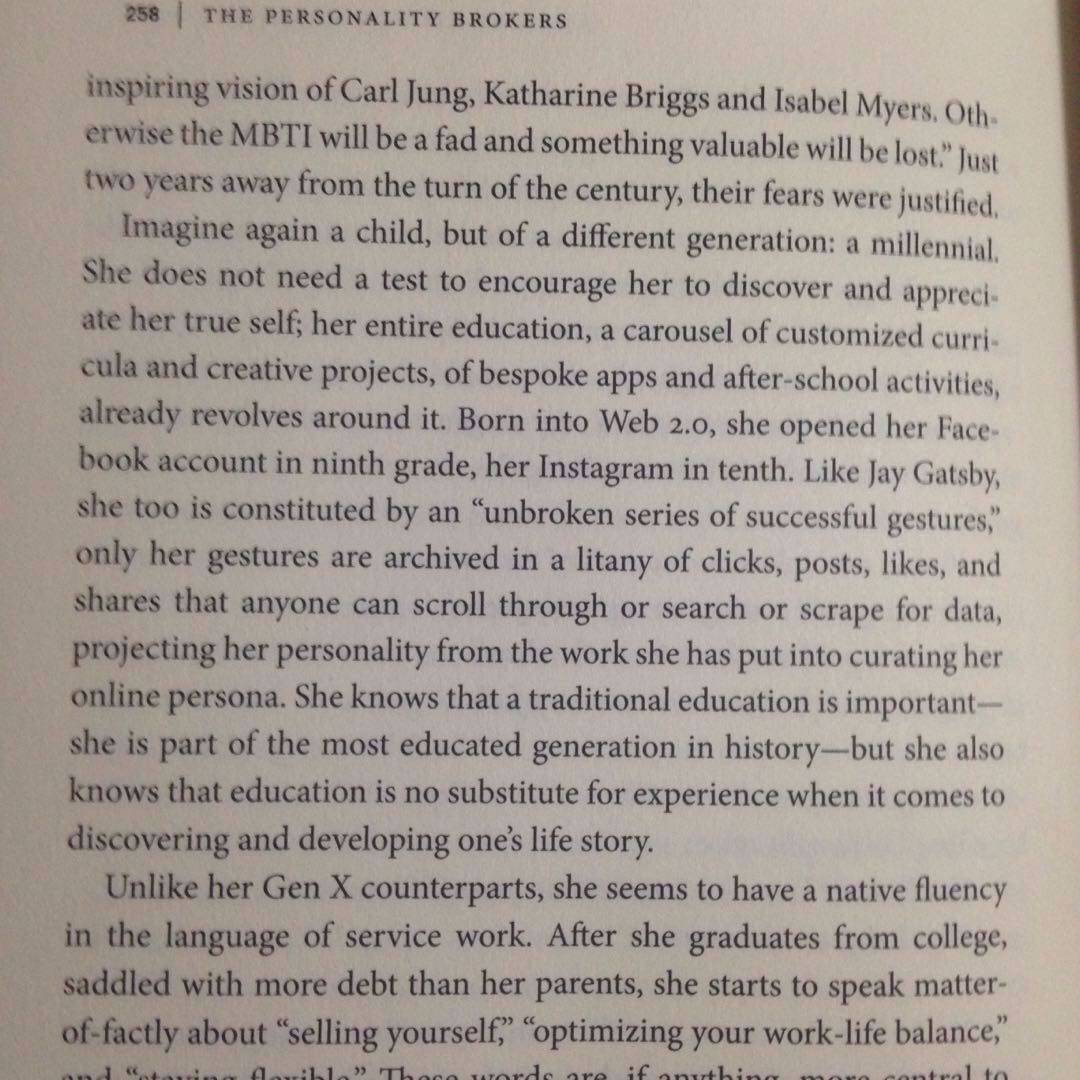
This author seems to think Millennials were "born into Web 2.0". No. Millennials were born from 1981 to 1996, and therefore many (including me) remember life before the world wide web. Also, Facebook accounts in this group were generally started many years before Instagram, because INSTAGRAM WASN'T AROUND when the oldest of us were in university. Cont'd ??
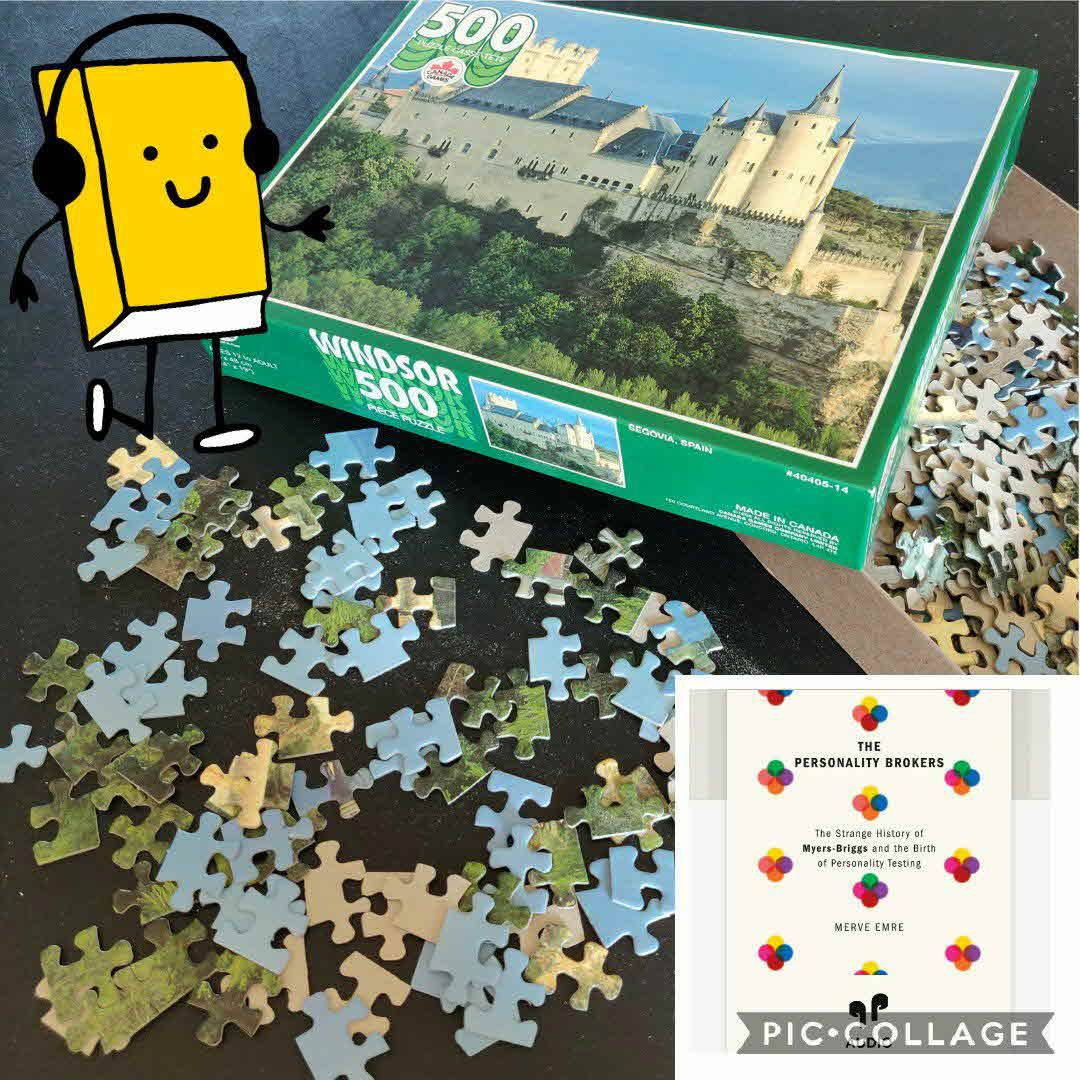
Today feels like a vacation day, I'm loving it. My first Saturday with no obligations or commitments in far too long.
Started a new #audiopuzzle. About 2/3rds through my current #audiobook and finding it v. interesting so far. There's so much historical context (WWII and its aftermath, women entering the workforce, etc.) that I didn't know about or didn't consider. This kind of popular non-fiction might be my fave genre on audio.
#30JuneBooks
Bailing on this one. The narrator of the audio version is good but I‘m at chapter 5 and just bored. I think this is just like many other books that has a much better smaller book inside. Too bloated with boringness.
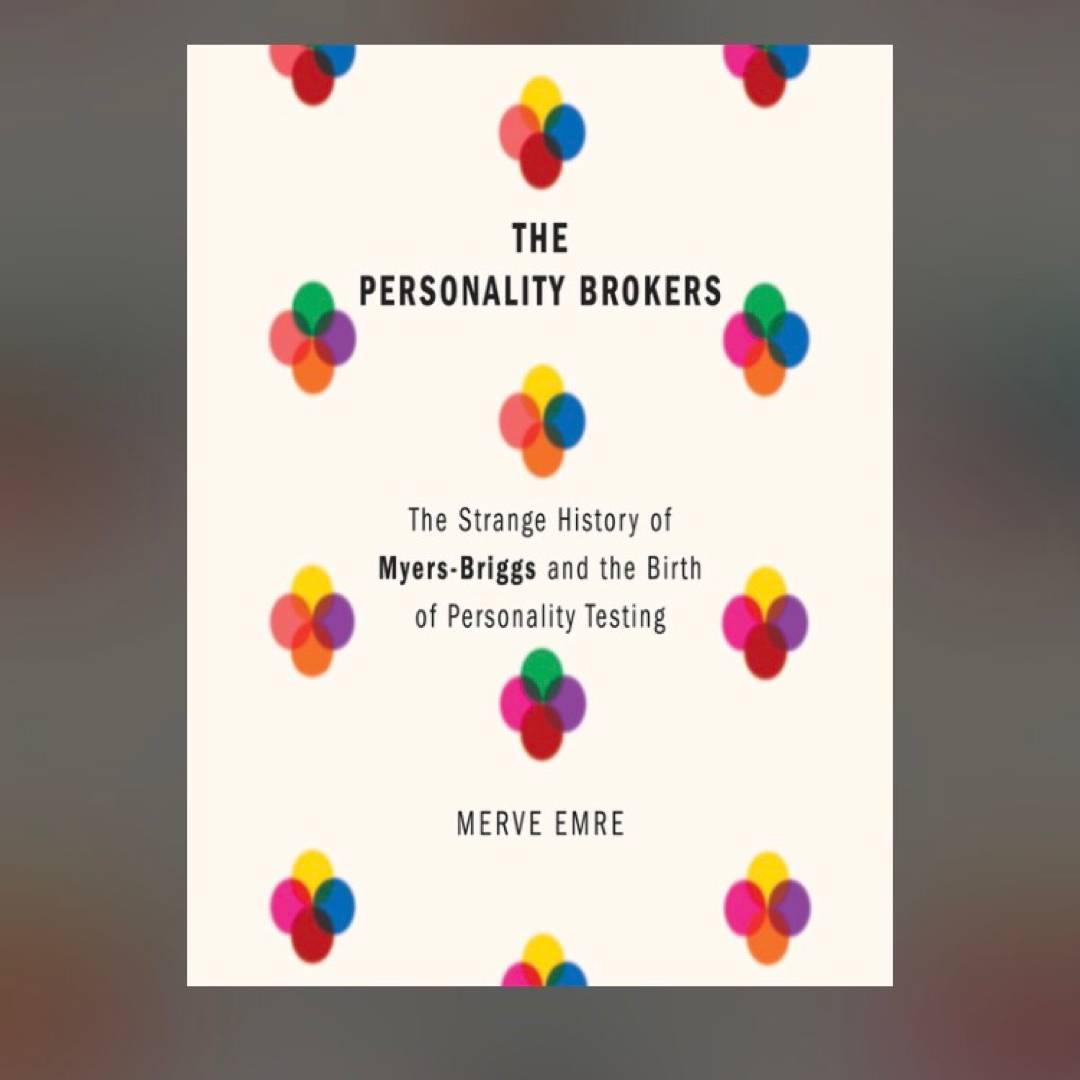
‘There was a certain narcissistic beauty to the idea, a certain luminance to the promise that, by learning to speak type, we could learn to compress the gestures of our messy, complicated lives into a coherent life story, one capable of expressing both to ourselves and to others not just who we were, but who we had been all along. What type offered us was a vision of individual identity in its most transcendent and transparent form.‘
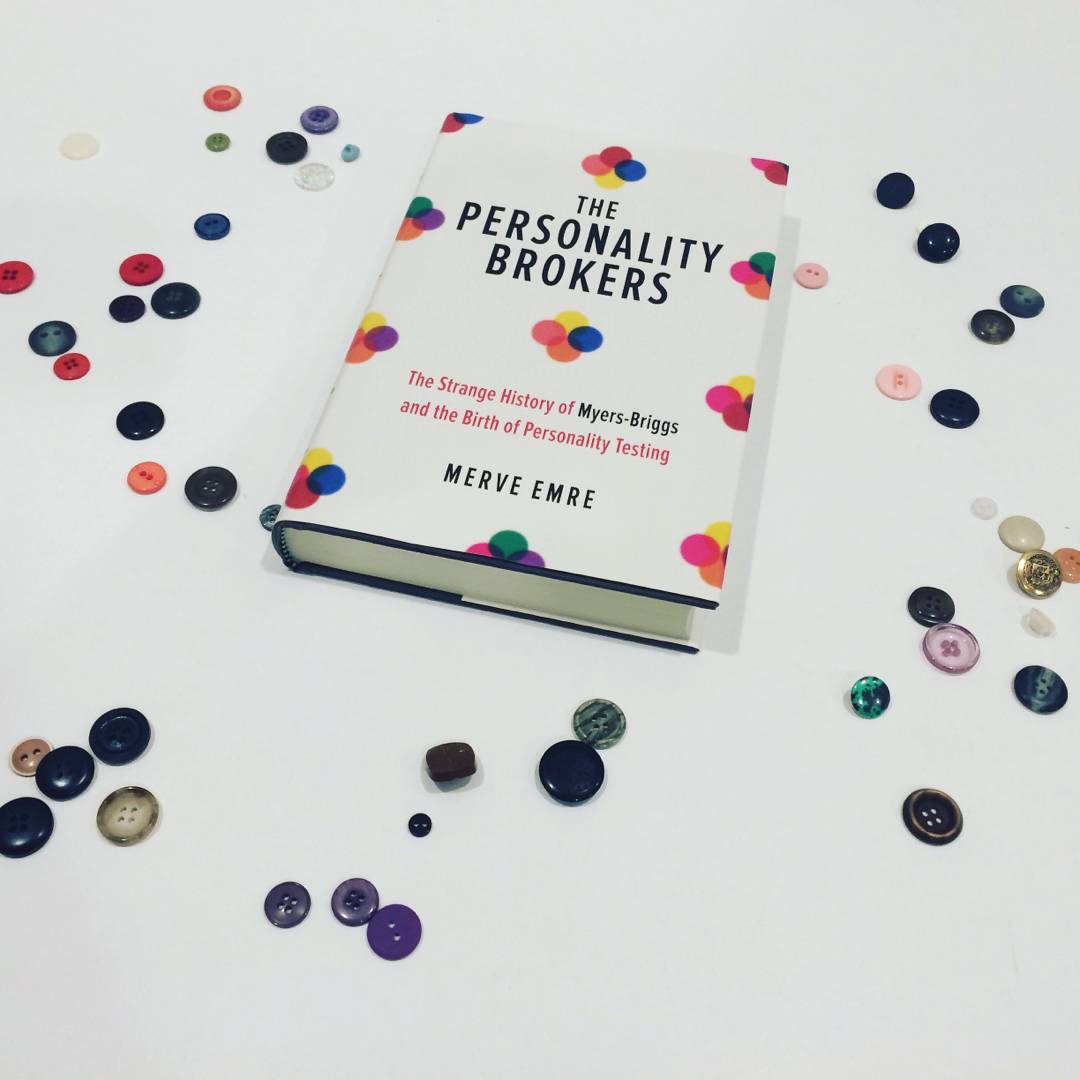
Up next on my nonfiction TBR: part hustle story, part awesome badass female empowerment narrative, “The Personality Brokers” looks like it‘s going to be an interesting read.
This book was recommended by Adam Grant and has been well loved by the HR Community. It reads like historical fiction or an investigative novel and is very intriguing. I ran out of time on my Libby Library lending app and have yet to pick it up again. I tend to read a very large handful of books at a time. #leadership #HR
What a weird story. If you've ever heard of the Myers-Briggs Personality test and taken the assessment and even if you haven't this is an interesting story about how 2 women came up with this method of defining people. I doubt you will read a more interesting story.
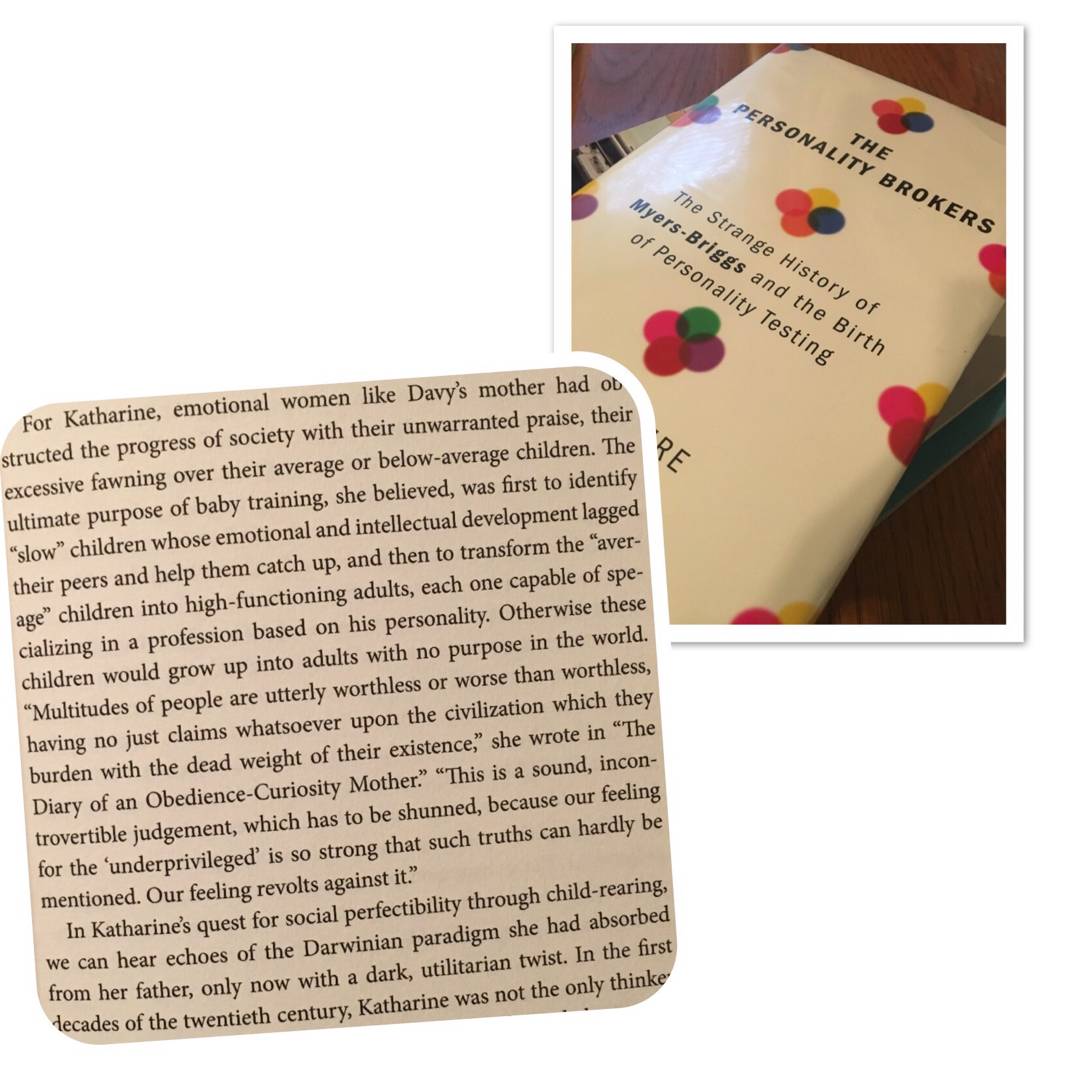
The Myers-Briggs type indicator is known and recognized pretty much everywhere. If you want to know how it started, this is the book for you. But if you‘re curious about its validation, credentials, replication...well, that‘s a whole different story, but that makes this book even more interesting. Very curious history behind Myers-Briggs and it‘s widespread appeal.
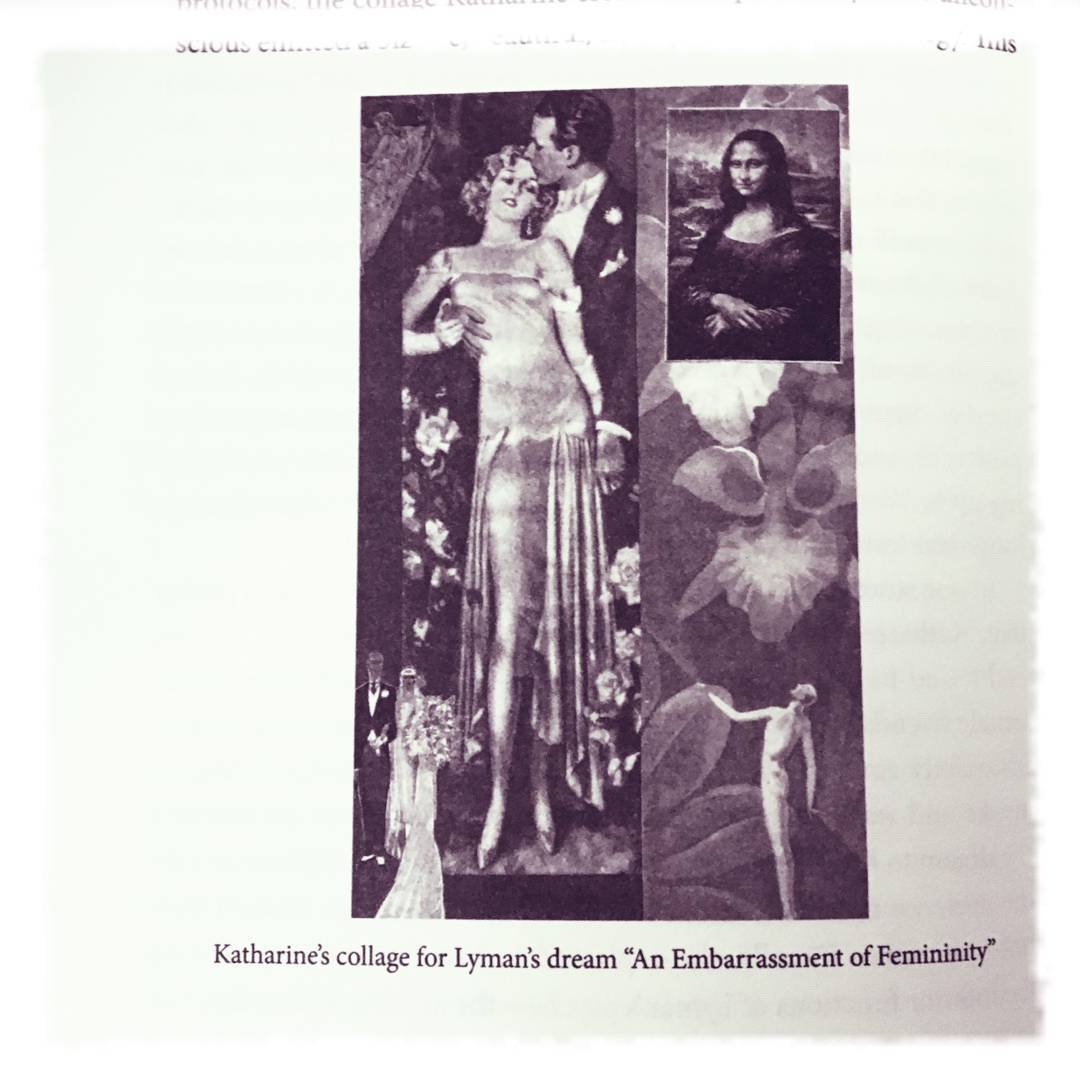
Just like the Myers-Briggs Personality Indicator this book is polarizing. Is the MBPI pseudoscience or psychology? The book encompasses history, biography, and self-care psychology. The author reveals the origins and development of the world‘s most popular personality test, but truth is demystifying. Despite its lack of statistical validity the MBPI continues to help people self-actualize. Faith is a mysterious thing. What‘s your type? 🔮
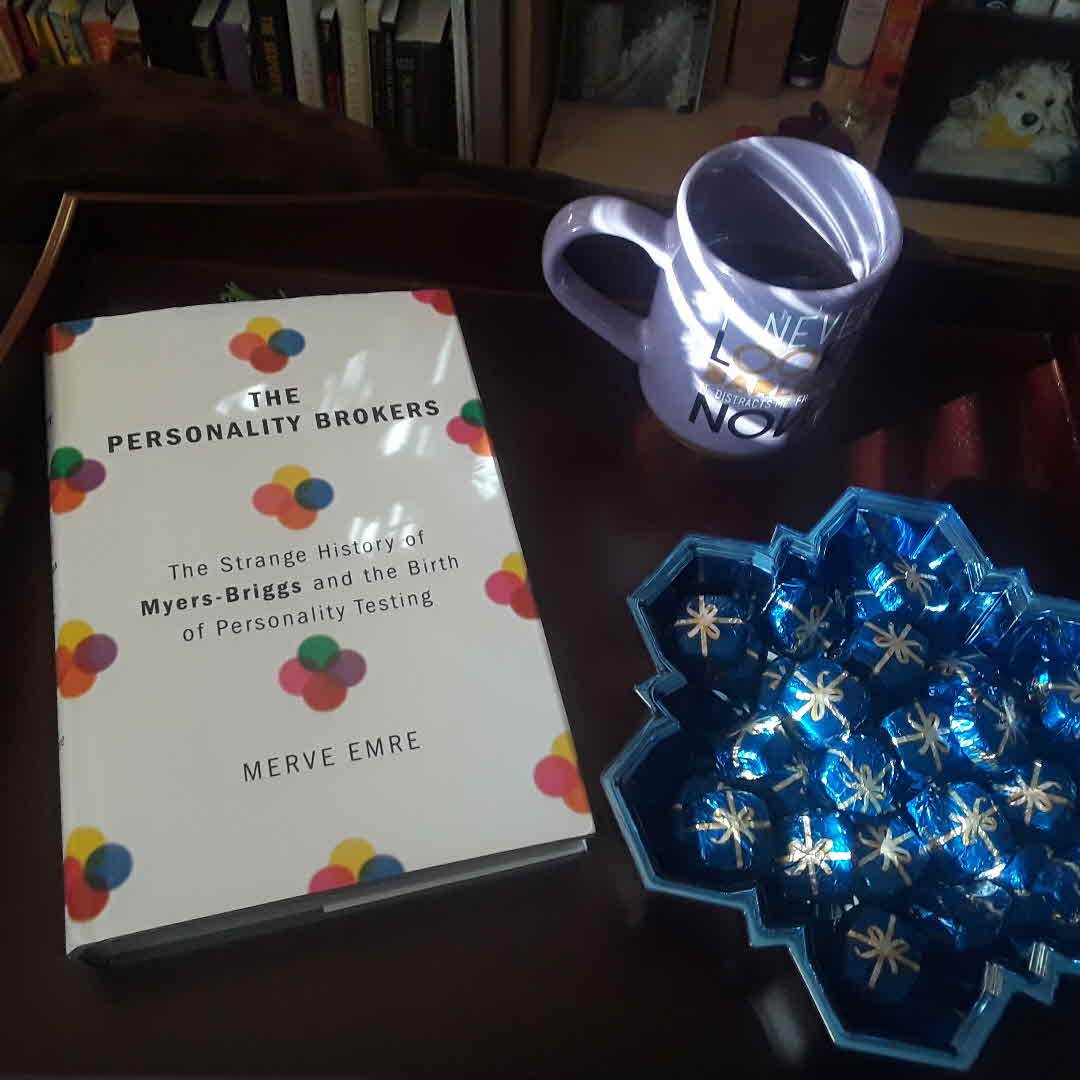
I refuse to get into the mess of shoppers today, instead I'm starting a new book and later I'll decorate my Christmas tree.
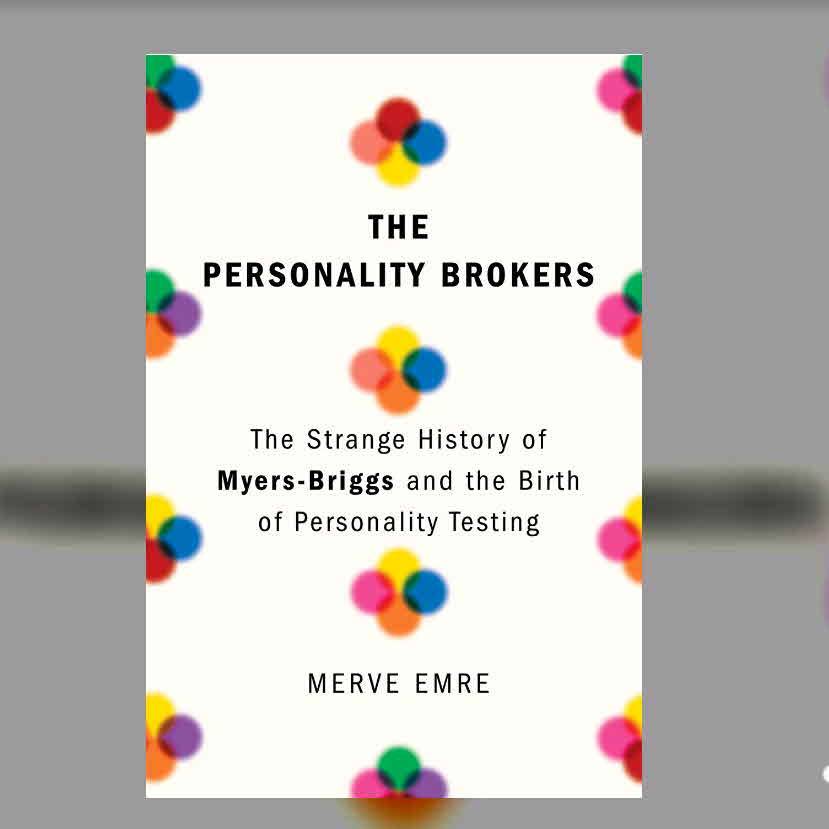
This book seemed like it was going to be an exposé of the MBTI but it's just a history, and the blurbers could probably leave out the "strange" in the description.
This book neither invalidates or affirms the MBTI. The authors perspective comes through more towards the end but throughout the majority of the book she remains impartial.
On the whole, somewhat interesting but uneccessary.
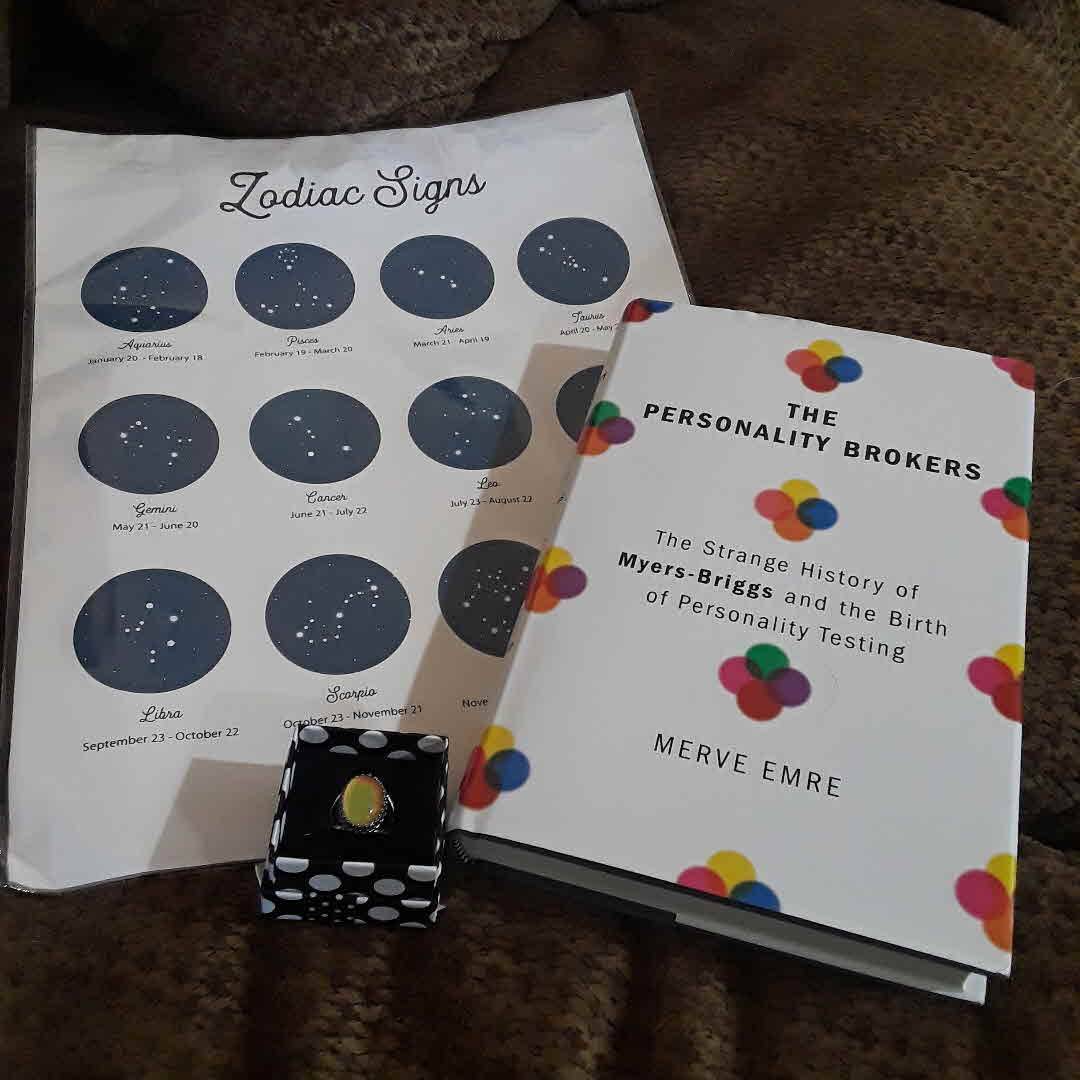
Happy, happy book mail. This book looks interesting and I can't wait to read it. Thank you Random House for sending this.
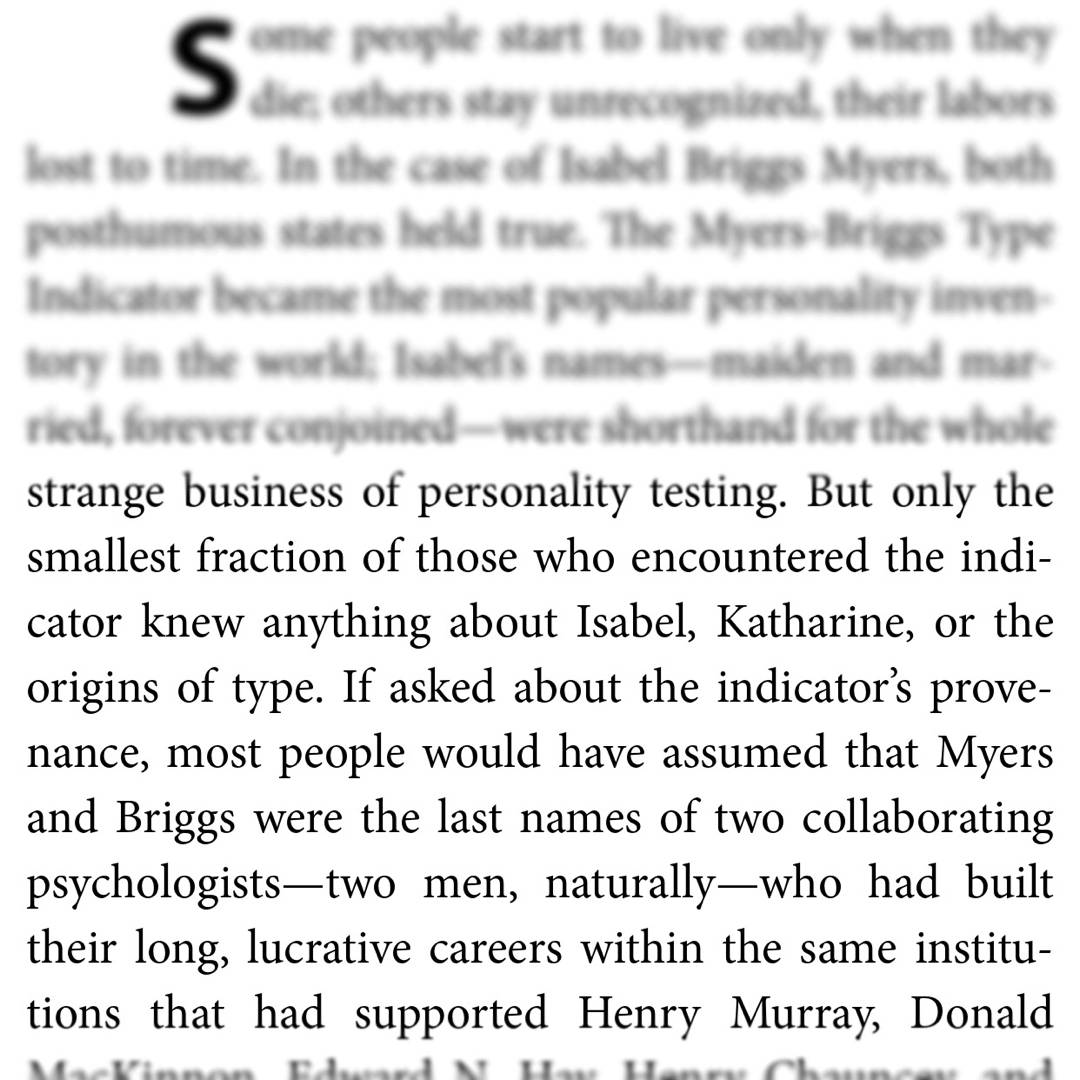
If you were ever a skeptic of personality testing then this book will confirm that belief. I suspected that the MBTI was less than scientifically rigorous, but WOW is it not even valid for repeat testing. The author compiled a lot of information - even when she couldn‘t gain access to Isabel Myers Briggs papers - to shed some light on this widespread (and lucrative) evaluation. The beginning of the book was a bit hard to get into but it picked up.